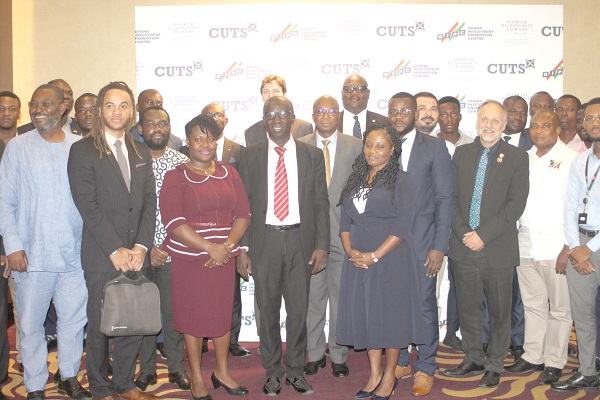
‘Scrap capital requirement for investors’
A multi-stakeholder research conducted this year has recommended the scrapping of the minimum capital requirement for prospective foreign investors.
The research, which was conducted by CUTS International, an advocacy organisation, in collaboration with the World Economic Forum (WEF) and the Ghana Investment
Promotion Centre (GIPC), said the minimum capital requirement was a disincentive to foreign investors.
Advertisement
The GIPC Act, 2013 (Act 865) requires that all enterprises in the country with foreign participation must register with the centre.
Under the act, the minimum capital required for retail business is $1 million; foreign investors who participate in joint venture enterprises need a minimum capital of $200,000, while wholly-owned foreign enterprises need a minimum capital of $500,000.
However, the research, which was conducted between May and June this year, found the provision to be one of the challenges to trade facilitation in the country.
Speaking to the findings of the research, the Centre Coordinator of the local office of CUTS International, Mr Appiah Kusi Adomako, said stakeholders engaged for the research advocated the removal of the minimum capital requirement condition to boost investment in the country.
“What we are saying is that we are losing out to our competitors in other countries in the sub-region who have all removed the minimum capital requirement from their books.
If Ghana keeps that requirement, we will lose out on foreign direct investments (FDIs).
“We know that the GIPC Act is being reviewed and I hope that they will remove that provision or, at worst, bring the amounts down to facilitate investments,” he added.
Measures
Mr Adomako also called for a stable and predictable tax regime to give investors confidence in their decision-making.
“Sometimes an investor sees that the corporate tax is 25 per cent and the next moment it changes, putting all plans in disarray. We recommend that this should be changed,” he said.
He further underscored the need for strategic investment in the agricultural sector because it was the only industry that had a direct impact on the development of the country, adding that there was the need to create linkages between the government’s One-district, One-factory (1D1F) policy and private sector farmers.
“Revenue from the oil and gas sector only stays with a few people at the top, but a prioritised agricultural sector investment means that money will stay with local people and transform the economy,” he said.
He also called for the creation of after-care mechanisms to track and address challenges investors faced after setting up in the country.
Key findings
An official of the WEF, Mr Mathew Stephenson, who presented key findings of the report, said 86 per cent of respondents mentioned job creation as the biggest development benefit they expected from FDIs.
He said the respondents, comprising investment practitioners, senior policy makers, business executives, research institutions and civil society organisations (CSOs), stressed the need for FDIs to translate into job creation to tackle the growing unemployment situation.
Additionally, 68 per cent of respondents underscored the need for the country to leverage FDIs to enhance the skills of low-income groups to bridge the development gap in the country.
Also, 40 per cent of respondents said FDIs must benefit low-income groups, while 36 per cent said it would increase exports and legal compliance.
Another 31 per cent said FDIs could bring about fair wages.



